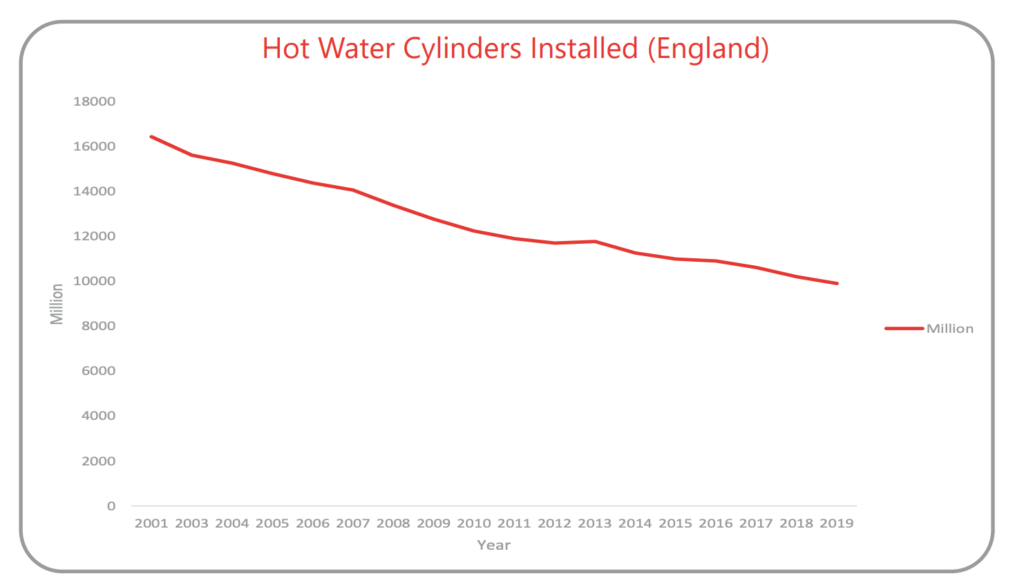With the energy price cap increase on 1st April, the cost to heat your home has never been so talked about. The huge increase in the price cap has plunged many people into poverty. With all this talk about price increases and the price cap, it’s important not to take our attention away from the significance of decarbonising our heating – and the issues we face in doing this. Around 9 million homes in England have hot water cylinders installed. This means around 18 million homes may need to install a hot water cylinder in order for the UK to meet Net Zero.
What is Net Zero?
Net zero refers to a state in which the greenhouse gases going into the atmosphere are balanced by removal out of the atmosphere.
The term net zero is important because – for CO2 at least – this is the state at which global warming stops. The Paris Agreement underlines the need for net zero, requiring countries to ‘achieve a balance between anthropogenic emissions by sources and removals by sinks of greenhouse gases in the second half of this century.
Isaac Occhipinti, Director of External Affairs, Hot Water Association said:
“The political focus of decarbonising heating has been solely on the heat source; such as boilers and heat pumps. There has been little to no focus on hot water cylinders, and recognition for the vital part they play in the efficient operation of low carbon heating. There is also, currently untapped potential for them to act as domestic batteries.”

Only around 45% of homes have a hot water boiler in 2021, compared with 77% in 2001. The key benefit of hot water cylinders is the idea of pre-heating as opposed to peak-heating. Connected hot water cylinders, can also deliver a similar service to the grid, to that of home battery storage systems. Not only this, it can be delivered
with a considerably lower environmental footprint. For example, a home battery consists of upwards of 100kg of materials such as Cobalt, and Lithium, which all come with a considerable environmental footprint. In contrast,
a modern hot water tank weighs around 30kg and is made from recyclable materials such as copper and stainless steel.
It’s important that consumers are aware of the benefits of modern, high-efficiency hot water boilers, and how they can help contribute to Net Zero.